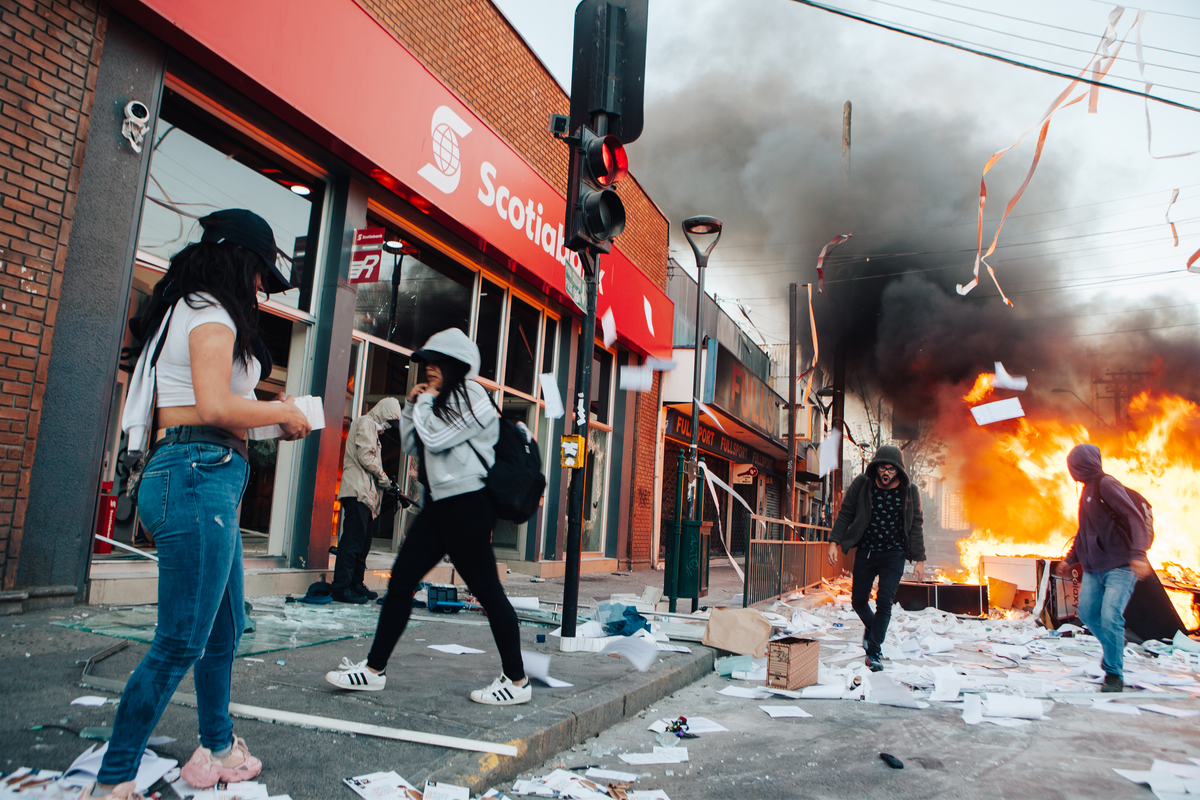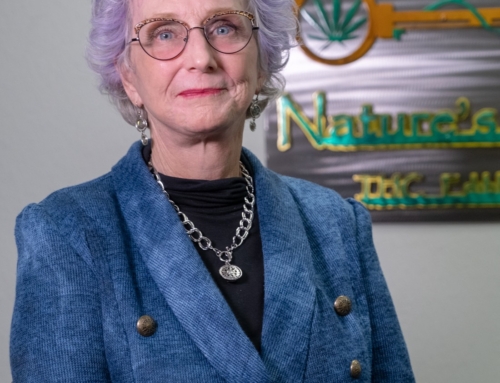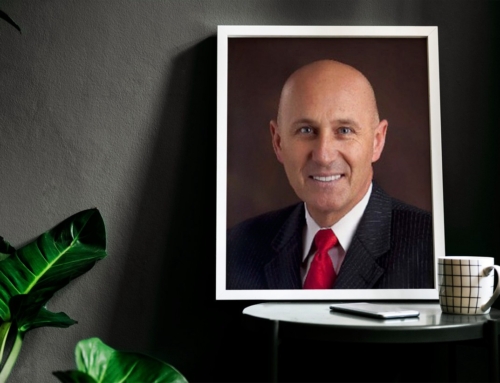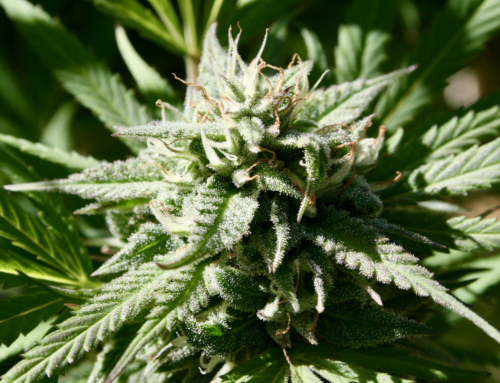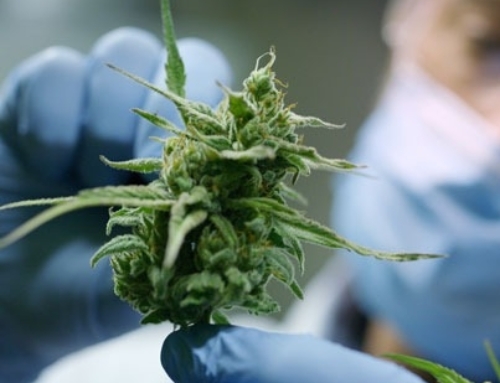Cannabis shops that were broken into during the last weekend of May in the wave of civil unrest following the brutal killing of George Floyd are reeling from the financial toll. Though several have said they supported the protests, the burglaries and looting perpetrated by a number of individuals has left some business owners worried about whether their operations can survive.
Dispensaries were hit hard; Leafly reports that 43 businesses in California and Oregon were ransacked. Boston’s Pure Oasis — the first minority-owned adult-use dispensary on the East Coast — reportedly lost $100,000. Chicago’s Mission Dispensary South Shore was “mostly destroyed,” the company president wrote on Facebook.
Several Los Angeles area dispensaries were vandalized during the demonstrations. Videos on social media show people climbing over security gates to break into Cookies Melrose, a popular pot shop in Los Angeles co-owned by rapper and weed entrepreneur Berner.
Cypress Hill’s B-Real reported a robbery at his San Francisco dispensary Dr. Greenthumb’s, and called for peaceful protest on Twitter, saying that “rioting, looting and burning down business… during a pandemic isn’t going to make the change needed.” The national cannabis dispensary chain MedMen temporarily closed down all of its locations after several of its Los Angeles stores were cleaned out.
A lack of access to traditional banking services makes cannabis stores especially vulnerable to looting and robbery, says Morgan Fox of the National Cannabis Industry Association (NCIA). Most financial institutions, including Visa and Mastercard, will not work with the cannabis industry, fearing federal prosecution, so dispensaries are forced to operate largely using cash. “It appears that criminals are exploiting this well-known fact,” says Fox.
Online searchable databases listing the names and locations of cannabis companies may also have played a part in the alleged robberies. The Bureau of Cannabis Control (BCC) and the California Department of Food and Agriculture (CDFA) disabled the licensing databases from their websites, at the urging of industry members who had been robbed during protests.
With law enforcement focused on the ongoing protests, Oakland dispensary owner Debby Goldsberry says the thieves used the demonstrations as a distraction. “To be clear, [these were] not protesters or looters, these were armed criminals,” she wrote on Facebook, after her shop Magnolia Wellness was robbed twice. As she tells Rolling Stone, “I was blindsided.”
Magnolia Wellness was already struggling with a sharp decline in sales due to the coronavirus pandemic. The robbers took or trashed everything in the building, including cannabis, computers, security system equipment and employee paychecks. Goldsberry says she’s still waiting to find out if insurance will cover any losses.
Magnolia Wellness also serves as an incubator for social equity licensees who have been disproportionately impacted by the criminalization of cannabis, providing support and free space to entrepreneurs like first-generation urban Native American Ron Leggett. A former executive director of the Oakland Food Pantry, Leggett was set to launch his cannabis company Chiefing on June 8th. He lost everything in the Magnolia robberies.
“They didn’t just steal,” says Leggett, “they destroyed everything. It looked like a hurricane went through the building.” Photos of the scene show bullets lodged in a wall and electronic equipment. Leggett was informed by his insurance company that his policy doesn’t cover damages caused by civil unrest; he estimates a total loss of $20,000. “It’s so devastating to me, my business,” he says. “I haven’t cried in probably 10 years. On Sunday, I cried.” Goldsberry has set up a GoFundMe for Leggett to help him rebuild.
Despite the destruction, people in the cannabis community remain supportive of the peaceful protests against police brutality. Berner released a statement after the sacking of Cookies Melrose, declaring, “I can’t expect anything less until justice is served. We can rebuild our store, but you can’t bring someone back to life.” San Francisco dispensary Sparc also released a statement in solidarity with protestors after several of its stores were robbed. “Sparc fully supports the public’s right to freedom of speech, and respects the right to protest in response to the murder of George Floyd.” Sweet Flower founder and CEO Tim Dodd addressed the looting of its Melrose Avenue store, telling Rolling Stone, “We understand the anger behind this incident… Sweet Flower stands together with the Black and Brown communities that have fallen victim to prejudicial and racial violence at the hands of police.” The store has since been repaired, and is open for business.
Goldsberry says there’s been an outpouring of community support for Magnolia Wellness and Chiefing since the robberies. “It’s been really heartwarming. People let us know they’d help with clean-up. Manufacturers and distributors [are] offering to donate product, so we can start up with enough supply to get the company going.” She hopes to reopen the dispensary sometime this month. “We really have to assess the capacity of the Oakland police department to respond to things like armed robbery — and we’re not opening until they can.”
This article was originally published in Rolling Stone.

